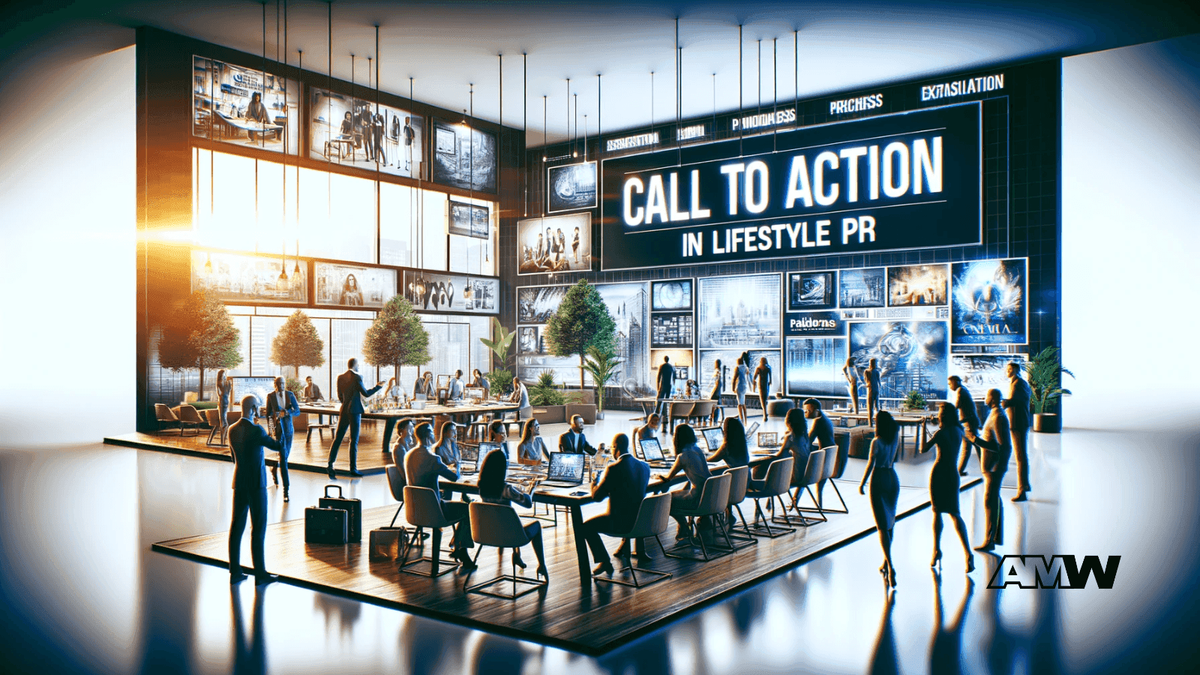Lifestyle PR: Connecting Brands with Consumers with PR Lifestyle

In marketing, Lifestyle Public Relations (PR) is a specialized approach that blends traditional PR tactics with a deep understanding of consumer lifestyle and culture.
Quick Summary
In lifestyle public relations, brands connect with consumers by integrating their identities into daily life, forming emotional bonds through compelling storytelling. Understanding target audiences requires in-depth research into lifestyles and psychographics, enhancing brand loyalty. Influencers serve as authentic intermediaries, promoting products in relatable ways. While digital media facilitates engagement, challenges like shifting consumer behavior and ad saturation necessitate innovation.
Unlike conventional PR, which often focuses on broad, corporate-level messaging, Lifestyle PR dives into consumers' everyday lives, aligning brands with their target audience's interests, habits, and preferences.
This blog aims to delve into how PR Lifestyle showcases a brand and creates a meaningful connection with consumers, fostering dedicated brand advocates.
Ready to Grow Your Business?
Get a custom strategy tailored to your goals.
The Essence of Lifestyle PR

What is Lifestyle PR?
Lifestyle PR represents a nuanced approach to public relations. It differs from traditional PR in its focus on integrating brands into the consumer's daily life.
This form of PR doesn't just aim to inform; it seeks to become a part of the consumer's lifestyle, engaging them on a more personal and emotional level. It is essential to comprehend the intended audience's lifestyle and values to make progress.
Whether it's fashion, food, travel, or health, it taps into these areas, ensuring the brand's message resonates deeply with the consumer's experiences and aspirations.
Brand Identity and Storytelling in PR Lifestyle

A core aspect of Lifestyle PR is its ability to shape and enhance a brand's identity, which is achieved through storytelling, an essential tool in the Lifestyle public relations arsenal.
By crafting compelling narratives that align with the consumer's lifestyle and values, brands can establish a deeper emotional connection. These stories are about selling a product or service and sharing experiences, values, and aspirations that the brand and the consumer hold dear.
Compelling storytelling in Lifestyle public relations transforms a brand from a mere entity selling goods or services into a relatable character in the consumer's life story.
Identifying and Understanding the Target Audience and Target Consumer

Identifying and understanding the target consumer demographic is imperative to implement PR Lifestyle strategies successfully.
This involves thorough market research to grasp the nuances of the consumer's lifestyle choices, preferences, and behaviors. Aligning PR strategies with these insights ensures that campaigns are seen and resonate with the audience. Lifestyle public relations goes beyond demographic data; it dives into psychographics, understanding attitudes, interests, and opinions, allowing brands to create more personalized and impactful connections with their customers.
Lifestyle PR is a powerful tool for brands to reach and truly connect with their target audience. It's about understanding and becoming a part of the consumer's world, creating stories and experiences that resonate personally. This approach doesn't just increase brand visibility; it builds brand loyalty and transforms consumers into passionate advocates.
Integrating Lifestyle PR into your marketing strategy can significantly enhance your connection with consumers and ultimately drive your business's success, whether you're a small business or a large corporation.
Influencers in Lifestyle PR

In Lifestyle PR, influencers have become essential intermediaries between brands and consumers, capable of influencing consumer decisions.
With their dedicated followers, influencers personify lifestyle choices and trends, making them ideal partners for brands looking to establish a strong presence in specific lifestyle sectors, be it fashion, beauty, food, or even travel and hospitality.
The effectiveness of influencers in lifestyle public relations lies in their ability to authenticate a brand's message. Their followers often view them as credible, relatable sources of information, making their endorsements highly valuable. Influencers can leverage their platforms to showcase how a product fits a lifestyle, demonstrating its use and benefits in real life. This approach enhances the brand's visibility and lends credibility and relevance to the target audience.
Ready to Grow Your Business?
Get a custom strategy tailored to your goals.
Choosing the right influencer is crucial. Their image and audience must align with the brand's values and target consumers. For instance, a travel brand might collaborate with influencers known for their adventurous and luxury travels. In contrast, a fitness apparel brand would benefit from partnerships with influencers passionate about health and fitness.
The main goal is to craft content that connects with the intended audience and drives engagement and sales for the brand.
Digital Media in Lifestyle PR

Social media have become essential tools in lifestyle PR campaigns. These platforms offer direct lines of communication with consumers and are necessary for creating and distributing content that resonates with the audience.
Effective content creation strategies in Lifestyle PR involve crafting narratives and visuals that align with the lifestyle and interests of the target audience. This could include aesthetically pleasing photographs, informative blog posts, engaging videos, and interactive social media stories.
For lifestyle brands, showcasing their products in action – apparel in everyday situations, beauty products in make-up tutorials, or luxury hotel experiences in travel vlogs – can be particularly effective.
The digital space also allows for a more interactive and personalized approach to PR. Brands can engage directly with consumers through comments, direct messages, and online events, creating a sense of community and belonging. This engagement is crucial for building long-term consumer relationships and fostering brand loyalty.
Measuring Success in Lifestyle PR

It is essential to measure the success of Lifestyle PR campaigns to understand their impact and effectiveness. One can use different metrics to assess various aspects of a PR campaign, such as reach, engagement, conversion rates, and overall brand sentiment.
Key metrics include:
- Media impressions (to gauge the reach).
- Engagement rates on social media posts (to assess how well the content resonates with the audience).
- Click-through rates (to measure consumer interest leading to potential sales).
Monitoring consumer feedback and reviews provides insights into the campaign's reception and impact on brand perception.
Ready to Grow Your Business?
Get a custom strategy tailored to your goals.
Furthermore, tracking PR campaigns' return on investment (ROI) is essential, especially for businesses where budget allocations are crucial. This involves looking at direct sales generated and considering the long-term value of increased brand awareness and customer loyalty.
The success of Lifestyle PR campaigns hinges on their ability to authentically connect with the target audience, create compelling content, and generate measurable results.
By strategically leveraging influencers, digital media, and careful campaign analysis, brands can effectively enhance their public image, engage with consumers, and achieve their marketing objectives in the lifestyle sector.
Challenges and Adaptation for Lifestyle Brands

Lifestyle PR, while effective, has its challenges. One of the primary hurdles is the ever-changing consumer behavior and market trends. With the rapid evolution of social media, what resonates with the audience today may become obsolete tomorrow. Brands must stay agile and adaptable, constantly updating their strategies to remain relevant.
Another challenge is the oversaturation of the market. With many companies vying for attention, it can be challenging to stand out. This is where the uniqueness of a brand's story and the authenticity of its message become crucial. Lifestyle PR must innovate to find new ways to capture the consumer's interest in a crowded market.
Moreover, the rise of 'ad blindness', where consumers subconsciously ignore overt advertisements, calls for more subtle and organic methods of brand promotion. Influencer partnerships, for example, must feel genuine and align closely with the influencer's regular content to be effective.
Adapting to these challenges requires a keen understanding of the target audience and the agility to pivot strategies as needed. Brands must keep their finger on the pulse of emerging trends, platforms, and consumer sentiments.
Investing in analytics and feedback mechanisms can provide valuable insights, guiding more effective and resonant campaigns.
Conclusion

In conclusion, Lifestyle PR is pivotal in connecting brands with their consumers. By weaving a brand's narrative into the consumer's daily life and utilizing influencers and digital media effectively, Lifestyle PR creates meaningful, lasting relationships between brands and their audiences.
The key to success in this field lies in authenticity, adaptability, and a deep understanding of consumer behavior.
Call to Action

Incorporating Lifestyle PR strategies into your marketing plan for marketers and businesses can significantly enhance your brand's connection with its audience. Consider how these approaches can be tailored to fit your brand's unique story and consumer base.
Furthermore, keep abreast of the latest trends and techniques in Lifestyle PR to ensure your strategies remain practical and relevant.
While we encourage you to continue exploring and discussing the nuances of Lifestyle PR within each professional network, sharing insights and experiences can provide a broader perspective, fostering innovation and growth in this exciting field. Staying informed is key to success in Lifestyle PR.
Ready to Grow Your Business?
Get a custom strategy tailored to your goals.
Related Articles

Why Storytelling Brands Create Connections
Storytelling brands are important in modern marketing. They help brands connect emotionally with their audience. A brand story shares what really matters creates loyalty and forms a meaningful con

How to Build a Brand
Creating a brand involves more than just a logo or name. It's a journey of discovering your core values, understanding your audience, and communicating your message in a way that resonates and builds

Emotional Branding: Connecting with Your Audience
In branding and marketing, emotional branding emerges as a transformative approach that transcends conventional tactics. Emotional branding is a strategy that uses human emotions to create a power